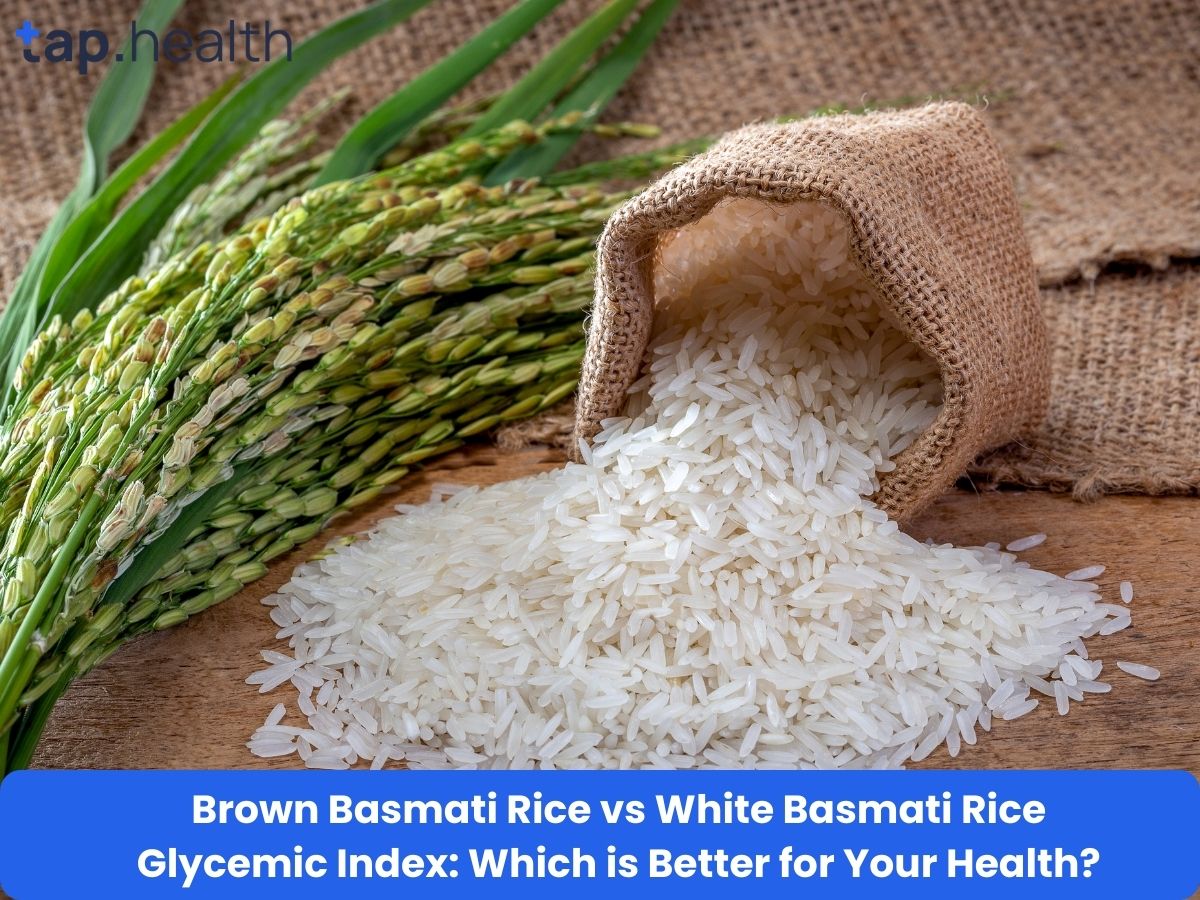Table of Contents
- Calcium & Diabetes: A Woman’s Guide to Bone Health
- Protecting Bone Health in Women with Diabetes
- Diabetes and Bone Health: The Importance of Calcium
- How Much Calcium Do Women with Diabetes Need?
- Strong Bones, Healthy Life: Calcium’s Role for Diabetic Women
- Frequently Asked Questions
- References
We all know that maintaining strong bones is crucial as we age, but did you know that women with diabetes face a heightened risk of bone loss? This makes protecting bone health even more critical. This blog post dives into the vital role calcium plays in supporting bone health specifically for women managing diabetes. We’ll explore how calcium deficiency can exacerbate bone problems and discuss practical strategies to ensure you’re getting enough of this essential mineral. Let’s uncover the connection between Protecting Bone Health: Calcium’s Role in Diabetes for Women and empower you to take proactive steps towards stronger, healthier bones.
Calcium & Diabetes: A Woman’s Guide to Bone Health
Women in India and tropical countries face a unique challenge: maintaining strong bones while managing diabetes. The risk is amplified; women with diabetes have a significantly higher risk of bone fractures and osteoporosis compared to their non-diabetic counterparts. This is further complicated by the fact that women with diabetes have a 40% higher risk of heart disease compared to men with diabetes, making bone health an even more critical concern. Maintaining adequate calcium intake is crucial in mitigating these risks.
Why Calcium is Essential for Diabetic Women
Calcium plays a vital role in bone density and strength. For women with diabetes, ensuring sufficient calcium intake becomes even more critical. Diabetes can interfere with calcium absorption, leading to weaker bones and increasing the vulnerability to fractures. Furthermore, certain diabetes medications can also contribute to bone loss. A balanced diet rich in calcium-rich foods like milk, yogurt (especially dahi, popular in India), leafy green vegetables (like spinach and amaranth, common in many tropical regions), and fortified foods is essential.
Practical Tips for Improving Calcium Intake
Incorporating calcium-rich foods into your daily diet is the first step. Consider including a glass of milk or a serving of yogurt with each meal. Fortified cereals and juices can also contribute to your daily calcium intake. However, it’s important to consult with your doctor or a registered dietitian to determine the appropriate calcium supplement dosage, especially if dietary intake alone is insufficient. For more information on supplements that can support bone health, you might find Supplements for Bone Health: Calcium, Vitamin D, and Beyond – Tap Health helpful. Remember, maintaining strong bones is a long-term commitment, and consistent effort is key. Another great way to boost your calcium intake is through beverages. Check out Bone Health: Calcium and Vitamin D-Rich Juices for some delicious ideas.
Prioritize Your Bone Health Today
Don’t underestimate the importance of bone health, especially if you are a woman living with diabetes in India or a tropical country. Speak to your healthcare provider today about your calcium intake and bone health concerns. They can help you develop a personalized plan to ensure you are getting the calcium you need to maintain strong, healthy bones throughout your life. Early intervention and proactive measures are crucial in preventing future complications.
Protecting Bone Health in Women with Diabetes
Diabetes significantly impacts bone health, particularly in women. This is a critical concern, especially in Indian and tropical countries where nutritional deficiencies and lifestyle factors can exacerbate the problem. The risk is heightened by the fact that nearly 15% of diabetics experience foot ulcers in their lifetime, often leading to high amputation risks. Strong bones are essential for preventing these debilitating complications. A primary factor in maintaining bone health is adequate calcium intake.
Calcium’s Crucial Role in Preventing Bone Loss
Calcium is vital for building and maintaining strong bones. However, women with diabetes often face challenges in absorbing and utilizing calcium efficiently. This can lead to osteoporosis, a condition characterized by weakened bones and increased fracture risk. In addition to a balanced diet rich in calcium-rich foods like dairy products (if tolerated), leafy green vegetables, and fortified foods, consideration should be given to supplementation, especially in regions with limited access to diverse nutritious food sources. This is particularly important in many Indian and tropical countries where dietary limitations are common. For delicious and nutritious recipes that can help boost your bone health, check out our blog on Bone-Boosting Meals for Stronger Bones: Nutritious & Delicious Recipes.
Actionable Steps for Better Bone Health
To improve calcium absorption and overall bone health, women with diabetes in Indian and tropical regions should focus on:
* Regular exercise: Weight-bearing activities help strengthen bones.
* Sufficient Vitamin D intake: Vitamin D is crucial for calcium absorption. Sun exposure (with appropriate precautions) and dietary sources are important.
* Regular check-ups: Monitor bone density and blood sugar levels regularly. Consult your doctor about appropriate calcium supplementation.
* Balanced Diet: Prioritize a diet rich in calcium, vitamin D, and other essential nutrients.
By actively managing diabetes and prioritizing bone health, women can significantly reduce their risk of fractures and other bone-related complications, leading to a better quality of life. Maintaining a strong immune system is also crucial, and you can learn more about that in our article on Boosting Immunity While Managing Diabetes. Consult your doctor or a registered dietitian to create a personalized plan to optimize your bone health.
Diabetes and Bone Health: The Importance of Calcium
Maintaining strong bones is crucial for women, especially those managing diabetes. A significant portion of the global diabetic population, 61%, falls within the 20-64 age group, a time when bone density is still actively developing and crucial for long-term health. This highlights the importance of proactive bone health management for women in this demographic, especially considering that 39% of people with diabetes are aged 65+, a time when bone fragility becomes a major concern. This is further discussed in our article on Managing Diabetes as You Age: Challenges and Solutions.
Calcium’s Crucial Role in Bone Health
Calcium is the cornerstone of strong bones. For women with diabetes, ensuring adequate calcium intake is even more vital. Diabetes can disrupt calcium metabolism, increasing the risk of osteoporosis and fractures, particularly in tropical and Indian climates where sunlight exposure, influencing Vitamin D synthesis (essential for calcium absorption), can be variable. This is especially true considering the prevalence of diabetes in the 20-64 age bracket in India and other tropical countries. A balanced diet rich in calcium-rich foods like dairy products (if tolerated), leafy greens, and fortified foods is essential. Supplementing your diet might be considered, but always consult our guide on Safe and Effective Dietary Supplements for Diabetes Care before making any changes.
Practical Steps for Bone Health
Beyond diet, regular weight-bearing exercise, like walking or yoga, is vital for bone strength. Furthermore, regular check-ups with your doctor, including bone density scans (DEXA scans) as recommended, are crucial for early detection and management of any bone health issues. Prioritize your bone health; it’s an integral part of overall well-being, especially for women navigating diabetes in diverse climates like those prevalent in India and other tropical regions. Consult your doctor or a registered dietitian to create a personalized plan that addresses your specific needs and dietary preferences.
How Much Calcium Do Women with Diabetes Need?
Maintaining strong bones is crucial for women, especially those managing diabetes. Diabetes can increase the risk of osteoporosis, a condition characterized by weakened bones, leading to increased fracture risk. Therefore, adequate calcium intake is paramount. While general recommendations suggest 1000-1200mg of calcium daily for adult women, the needs of women with diabetes might be slightly higher depending on various factors including age, activity level, and overall health. Individual requirements should be determined in consultation with a doctor or registered dietitian.
Factors Influencing Calcium Needs in Diabetic Women
Several factors influence a woman’s calcium requirements when managing diabetes. Dietary choices play a significant role. A balanced diet, incorporating calcium-rich foods like leafy green vegetables (common in Indian and tropical cuisines), dairy products (if tolerated), and fortified foods, is crucial. The presence of other underlying health conditions or medications can also influence calcium absorption and bone health. For example, some medications can interfere with calcium absorption. Therefore, it’s crucial to discuss your individual needs with your healthcare provider.
Practical Tips for Indian and Tropical Women
Many traditional Indian and tropical diets naturally include calcium-rich foods. However, ensuring adequate intake requires careful consideration. Incorporating foods like rajma (kidney beans), chole (chickpeas), and fortified milk or yogurt can significantly boost calcium intake. Consulting a nutritionist familiar with local dietary practices can help tailor a plan that’s both effective and culturally appropriate. Remember, consistent monitoring of blood glucose levels is also vital for overall health and bone health maintenance. Regular check-ups with your doctor are essential to ensure optimal calcium levels and diabetes management. Don’t hesitate to address any concerns with your healthcare provider to formulate a personalized plan that addresses your specific needs. It’s also important to understand how other aspects of diabetes management impact overall health; for example, Why is Potassium High in Diabetic Ketoacidosis? can provide valuable insights into related metabolic processes. Furthermore, understanding the potential for developing diabetes after pregnancy is also crucial, as detailed in Can You Develop Diabetes After Pregnancy?.
Strong Bones, Healthy Life: Calcium’s Role for Diabetic Women
Diabetes significantly impacts bone health, particularly for women in India and other tropical countries. This is partly due to the increased risk of kidney disease associated with diabetes; nearly 30% of diabetics develop diabetic nephropathy, impacting calcium absorption and bone density. Maintaining strong bones is crucial for preventing fractures and improving quality of life, especially as women age. Calcium plays a vital role in this process.
Understanding Calcium’s Importance
Calcium is essential for building and maintaining strong bones. For women with diabetes, adequate calcium intake becomes even more critical due to the increased risk of bone loss. Factors like impaired glucose metabolism and potential medication side effects can further exacerbate this risk. A balanced diet rich in calcium-containing foods, such as dairy products (if tolerated), leafy green vegetables, and fortified foods, is paramount. However, dietary intake alone may not be sufficient, and supplementation might be necessary depending on individual needs and medical advice. For delicious and convenient ways to boost your calcium intake, check out Boost Your Bone Health with These Calcium-Rich Juices.
Practical Tips for Indian & Tropical Women
Given the prevalence of diabetes and nutritional deficiencies in many Indian and tropical regions, focusing on a holistic approach to bone health is essential. This includes: regular exercise (weight-bearing activities are particularly beneficial), sun exposure for vitamin D synthesis (crucial for calcium absorption), and regular check-ups with a doctor or endocrinologist to monitor bone density and manage diabetes effectively. Consult your doctor before starting any new supplements or significantly changing your diet, especially if you have kidney issues related to diabetes. Prioritizing bone health is an investment in a healthier and more fulfilling life. Remember that gut health also plays a significant role in overall health, and managing diabetes effectively can be supported by a healthy gut. Learn more about this connection in Enhance Gut Health and Manage Diabetes with Prebiotics and Probiotics.
Frequently Asked Questions
Q1. Why are women with diabetes at higher risk of osteoporosis?
Women with diabetes, particularly in tropical climates like India, face a significantly increased risk of osteoporosis and fractures. This is because diabetes interferes with calcium absorption, a crucial element for bone health. Additionally, some diabetes medications can contribute to bone loss, and women with diabetes also have a higher risk of heart disease, further compounding the issue.
Q2. How can I increase my calcium intake to protect my bones?
Prioritize a diet rich in calcium-rich foods such as dairy products, leafy green vegetables, and calcium-fortified foods. However, you may also need calcium supplements; consult your doctor or a registered dietitian to determine the right approach for you.
Q3. Besides calcium, what else can I do to maintain strong bones?
Maintaining strong bones requires a multi-pronged approach. In addition to adequate calcium, ensure you get enough vitamin D, engage in regular weight-bearing exercise, and schedule regular check-ups with your doctor to monitor your bone health. Early intervention is key.
Q4. What are the potential consequences of neglecting bone health with diabetes?
Ignoring bone health significantly increases your risk of osteoporosis and fractures, leading to pain, reduced mobility, and decreased quality of life. It’s crucial to take proactive steps to protect your bones.
Q5. When should I consult a doctor about my bone health and diabetes?
It’s essential to consult your doctor or a registered dietitian as soon as possible if you have diabetes. They can assess your individual risk factors, recommend appropriate calcium intake (including whether supplementation is necessary), and create a personalized plan to maintain your bone health.
References
- A Practical Guide to Integrated Type 2 Diabetes Care: https://www.hse.ie/eng/services/list/2/primarycare/east-coast-diabetes-service/management-of-type-2-diabetes/diabetes-and-pregnancy/icgp-guide-to-integrated-type-2.pdf
- Diabetes in Older Adults: A Consensus Report: https://en.iacld.com/UpFiles/Documents/292529019.pdf



